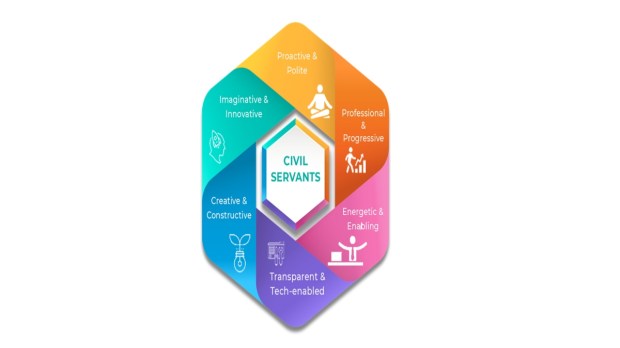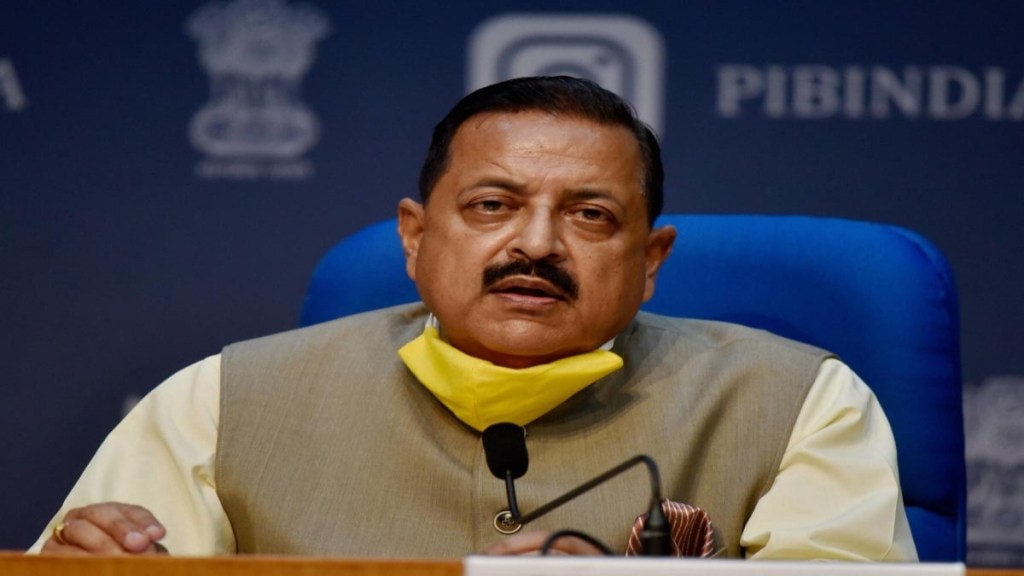By Manish Kumar Tiwary
In an era where the dynamics of governance and public service are evolving rapidly, India has embarked on an ambitious journey to transform its civil service with the launch of the Mission Karmayogi scheme on September 2, 2020. Under the auspices of the Ministry of Personnel, Public Grievances, and Pensions, this initiative is not merely a reform; it is a renaissance of the Indian civil service, drawing its philosophical roots from the ancient wisdom of the Bhagavad Gita and particularly its principle of “Yogah Karmasu Kaushalam” — the art of achieving perfection and efficiency in action. This guiding philosophy marks a paradigm shift from traditional rule-based governance to a more dynamic, role-based approach, aiming at a holistic transformation within the civil services by instilling a culture that emphasizes core competencies such as ethics, equity, and efficiency.
The Philosophical Essence of Mission Karmayogi
At the heart of Mission Karmayogi lies a profound philosophical ethos inspired by the Bhagavad Gita, advocating for duty and action without attachment to outcomes. This ancient scripture teaches the value of performing one’s duty with dedication and integrity, without being swayed by the desire for rewards or outcomes. The scheme’s nomenclature itself, derived from the Sanskrit words “Karm” (action or duty) and “Yogi” (one who practices integration or union), embodies a commitment to righteousness and the path of action. The Bhagavad Gita’s teaching, “Karmanye Vadhikaraste, Ma Phaleshu Kadachana,” which means one has the right to work, but not to the fruits of work, is a cornerstone of this initiative, encouraging civil servants to focus on their responsibilities with excellence, whilst maintaining detachment from the results of their actions.

Transformative Goals of Mission Karmayogi
Mission Karmayogi aims to revolutionize the way civil servants are trained and developed, transitioning from a static, rule-based training regime to a dynamic, role-based learning environment. This initiative seeks to address several challenges within the civil service, including breaking down silos, fostering teamwork, enhancing continuous learning, and integrating various training institutions to create a comprehensive and cohesive framework for capacity development. By focusing on building core competencies and ensuring continuous improvement, the scheme endeavors to elevate the productivity and effectiveness of civil servants, thereby enhancing service delivery to the citizens of India.
Institutional and Structural Framework
The National Programme for Civil Services Capacity Building, as Mission Karmayogi is officially known, features an elaborate institutional framework to oversee its implementation. This includes the Prime Minister’s Public Human Resources (HR) Council, which provides strategic direction; the Capacity Building Commission, responsible for formulating annual capacity building programs; and a Special Purpose Vehicle designed to create and manage a digital network for training, exemplified by the iGOT Karmayogi platform. This comprehensive structure ensures a coordinated and strategic approach to civil service reform, aligning with the broader objectives of improving efficiency, transparency, and responsiveness in public service.
Key Components and Approaches
Mission Karmayogi’s approach is built on several key components, each designed to address specific areas of civil service reform. This includes transitioning from a rule-based mindset to a role-based perspective, emphasizing empathy and a citizen-centric approach in addressing public grievances. The initiative also introduces a continuous performance analysis framework, a strategic human resource management strategy, and a digital learning platform to provide civil servants with access to world-class learning materials. These elements are integrated into a holistic reform strategy aimed at enhancing the capacity of civil servants to deliver superior services to citizens.
Moreover, the program is structured around six pillars, including policy and competency frameworks, institutional and strategic human resource management, and monitoring and evaluation mechanisms. This structure ensures a comprehensive approach to building the competencies required for a modern, effective, and ethical civil service.
Philosophical Integration with Administrative Reforms
What sets Mission Karmayogi apart from other reform initiatives is its unique integration of philosophical principles with administrative reforms. Drawing on India’s rich cultural and spiritual heritage, the scheme seeks to inspire a new generation of government employees who are not only skilled and efficient but also deeply committed to the welfare of the country and its citizens. This fusion of ancient wisdom with contemporary governance challenges represents an innovative approach to enhancing the effectiveness and ethical standards of public service.
The Impact and Future of Mission Karmayogi
As Mission Karmayogi continues to unfold, its impact on the civil services and, by extension, on the governance of India, is expected to be profound. By fostering a culture of continuous learning, excellence in service, and ethical conduct, the scheme aims to create a cadre of public servants who are equipped to meet the challenges of the 21st century. The emphasis on role over rule, continuous improvement, and a citizen-centric approach is expected to revolutionize public service delivery in India.
The future of Mission Karmayogi lies in its ability to adapt and evolve in response to the changing needs and expectations of the public it serves. As it moves forward, continuous evaluation and refinement of its strategies and frameworks will be essential to ensure its success in achieving the goal of a more efficient, transparent, and responsive civil service.
In conclusion, Mission Karmayogi represents a bold and visionary step towards reimagining and revitalizing the Indian civil service. By blending the timeless wisdom of the Bhagavad Gita with the practical imperatives of modern governance, it offers a blueprint for a more enlightened, efficient, and ethical public service. As India strides towards its goal of becoming a global leader, the principles and practices embodied in Mission Karmayogi will play a crucial role in shaping the future of governance and public administration in the country.
The author is PhD scholar Jamia Millia Islamia.
Disclaimer: Views expressed are personal and do not reflect the official position or policy of Financial Express Online. Reproducing this content without permission is prohibited.

